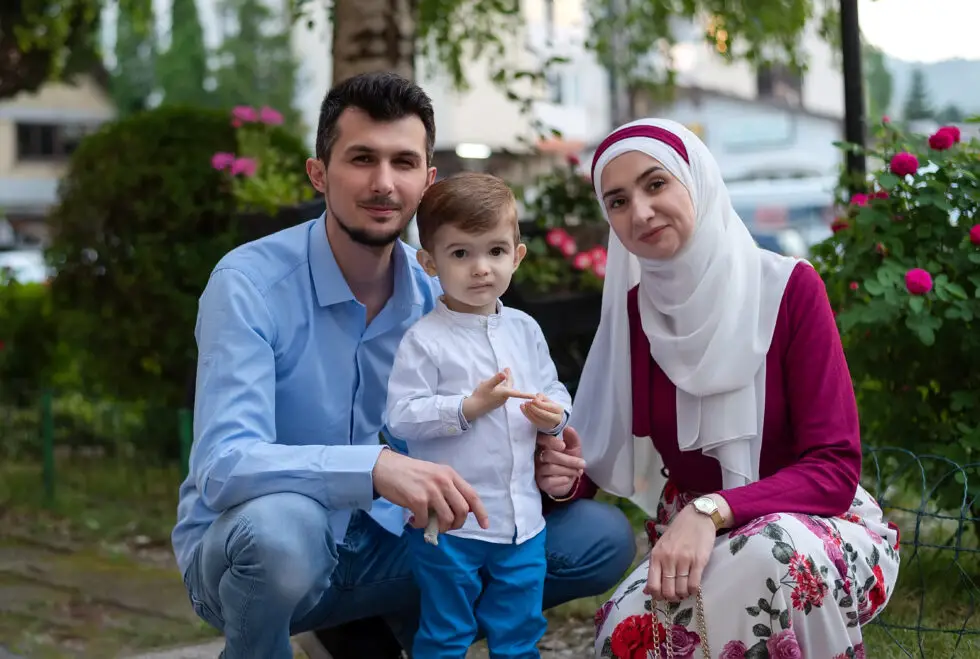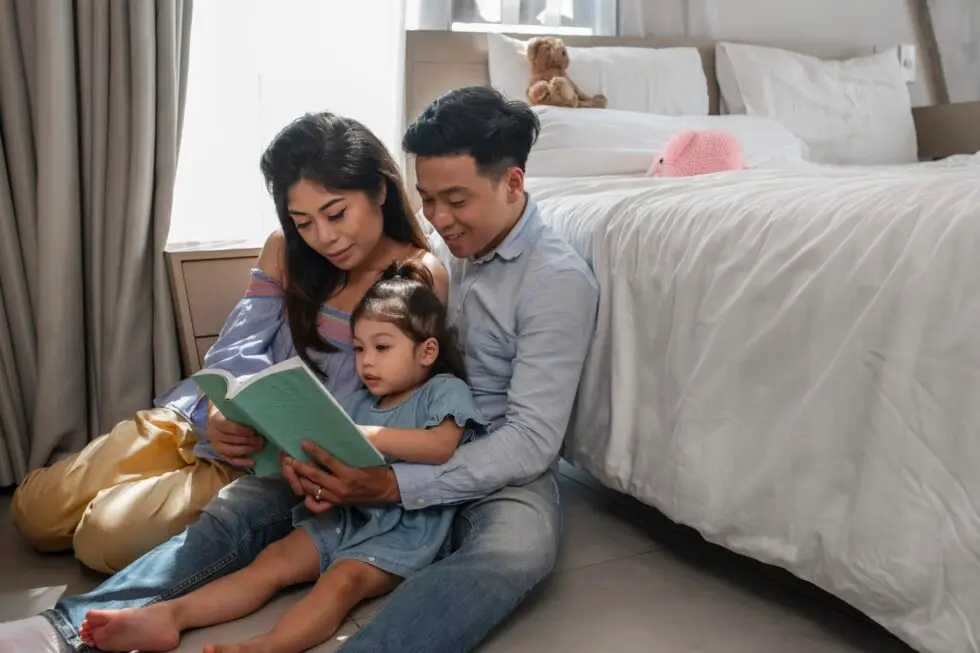What is § 33 AufenthG?
§ Section 33 of the Residence Act is a crucial paragraph for families with children born in Germany. It regulates the conditions under which a child is granted a residence permit upon birth in Germany - often automatically. Let's start with the legal background and the objective of Section 33 of the Residence Act!
Legal background
Legal framework:
Section 33 AufenthG allows children born in Germany to obtain a residence permit under certain conditions. According to Section 33 sentence 1 AufenthG, this applies regardless of the general requirements set out in other sections of the Residence Act (in deviation from Sections 5 and 29 para. 1 no. 2 AufenthG).Differentiation from other regulations:
While § 33 AufenthG applies specifically to children born in Germany, other paragraphs such as § 32 AufenthG regulate different situations in family and residence law. Following § 32 AufenthG, § 34 AufenthG is also relevant for children as a change option.
Objective of § 33 AufenthG
The main objectives of Section 33 AufenthG are obvious:
Protection of the best interests of the child:
A clear legal regulation ensures that children born in Germany can be in possession of a residence permit from the time of birth under certain conditions and do not have to live in uncertainty regarding their residence .- Promotion of family unity: Section 33 of the Residence Act also aims to ensure that family unity is guaranteed in accordance with Article 6(1) of the Basic Law and that there is no separation.
Promoting integration:
Section 33 AufenthG is part of the law on the residence, employment and integration of foreigners in Germany. The residence permit paves the way for the long-term integration of the child and their family into German society. This includes access to education, medical care and other basic rights.
Requirements for § 33 AufenthG
In order for your child to receive a residence permit in accordance with § 33 AufenthG, certain requirements must be met. These depend both on your residence status as a parent and the place of birth of your child.
Parent with Residence permit
One of the most important requirements for the application of Section 33 AufenthG is that at least one parent must have a valid Residence permit . These include:
- Residence permit: Temporary authorization to stay in Germany.
- Settlement permitPermanent residence permit with extensive rights .
- EU permanent residence: Right of residence that is valid within the European Union.
If you and your spouse have a Residence permit at the time of the birth, the provision of § 33 sentence 2 AufenthG applies.
Legal text: "If, at the time of birth, both parents or the parent with sole custody hold a residence permit, a Settlement permit or an EU permanent residence permit, the child born in Germany will be issued a residence permit ex officio in accordance with Section 33 sentence 2."
Birth in Germany
The place of birth plays a central role in the application of Section 33 of the Residence Act. For your child to fall under this regulation, it must have been born in Germany. This includes
- Hospital births or home births: Every birth that is officially registered in Germany.
- Proof of birth: The birth certificate serves as decisive proof of the place of birth and is necessary for the application.
It is important that the birth is registered correctly with the registry office. This forms the basis for all further steps.
Special regulations for visa holders
If you are staying in Germany as a parent with a visa or visa-free, special regulations apply to your child:
- Your child's stay is considered to be permitted until the visa or visa-free period expires. According to § 33 sentence 3 AufenthG, this means that as long as the child's parent is allowed to stay without a visa, the child's stay is also secured.
- However, the residence permit is not issued automatically; you must actively apply for the permit.

Practical implementation and application
The provisions of Section 33 AufenthG provide a clear legal basis, but how do you put them into practice? Here you can find out which steps you need to take, which deadlines you should observe and how you can overcome possible hurdles.
Applying for a residence permit
In most cases, the residence permit for children born in Germany to foreigners is issued automatically by the responsible Foreigners' office , provided the requirements are met. In other cases, however, an active application is required. You should note the following points:
Responsible authorities:
- The Foreigners' office at your family's place of residence is always responsible.
- If you have any questions about the birth certificate, please contact the relevant registry office.
Required documents:
- Birth certificate of the child (proof of birth of the child in Germany).
- Proof of the parents' Residence permit (e.g. residence permit, Settlement permit).
- Passport of the child, if available (if not, then reasons for why the passport cannot be obtained and Clarification of identity of the parents).
- Forms from Foreigners' office (often available online).
- Biometric passport photo
- Securing a livelihood (in individual cases).
Tip: Check the website of Foreigners' office in advance to find out exactly which documents are required in order to avoid unnecessary delays.
Procedure and deadlines
Depending on the situation, there are differences in the procedure for issuing the residence permit:
Automatic issue:
If both parents have a valid Residence permit , the child's residence permit is usually issued automatically. You will often receive the confirmation directly after the birth registration.Application:
If the automatic issue does not apply, you must actively apply for the residence permit.- Deadline: Apply for the permit as soon as possible after the birth to avoid problems.
- Processing time: Depending on the authority, processing may take several weeks.
Typical challenges in practice
Even with clear regulations, challenges can arise in practice. We share this experience from our legal practice:
Incomplete documents:
A common reason for delays is the lack of important documents such as birth certificates or Residence permit of the parents.Unclear responsibilities:
In some cases, there may be uncertainty as to which authority is responsible, especially for visa holders.Communication problems with the authorities:
Official processes are often complex and not always transparent. Clear and structured communication can help to avoid misunderstandings.
Solutions:
- Use checklists to ensure that all documents are complete.
- Find out about the responsibilities and procedures from your Foreigners' office or a specialist lawyer at an early stage.
- Get legal support for complex cases to speed up the process and make it legally compliant.
Here we have compiled a checklist for you with the most important documents for applying for Section 33 AufenthG. You can use it to check yourself.
Frequent misunderstandings about Section 33 AufenthG
There are always misunderstandings surrounding Section 33 AufenthG that can cause confusion for parents. In this section, we clarify the most frequently asked questions and misconceptions to give you a clear overview.
Do all children automatically receive a residence permit?
No, not all children born in Germany automatically receive a residence permit. The decisive factor is the residence status of the parents:
Automatic granting:
- Both parents or the parent with sole custody have a residence permit, Settlement permit or EU permanent residence permit.
- In these cases, the residence permit is usually issued automatically by Foreigners' office .
Application required:
- If only one parent has a Residence permit or the parents are in Germany on a visa, you must actively apply for a residence permit.
Misunderstanding: Some parents think that simply being born in Germany is sufficient. However, this is not the case if the above-mentioned requirements are not met.
What rights does the child have under the residence permit?
The residence permit according to § 33 AufenthG secures important rights for your child, which are crucial for a stable and secure future in Germany:
Right of residence:
Your child may stay in Germany as long as the residence permit is valid. Your child's residence permit is always linked to the residence permit of you and your spouse/partner.Access to education and healthcare:
The residence permit entitles your child to attend kindergarten, school and medical care.Prospects for long-term residence rights:
The residence permit can be extended if certain requirements are met or converted into a Settlement permit from the age of 16.
Important to know: Your child's rights depend on their residence status. For example, the parents' Settlement permit offers long-term benefits for the child.

What role does the parents' Residence permit play?
The parents' Residence permit is the central factor for the granting of a residence permit in accordance with § 33 AufenthG. You should know the following:
Positive effects:
- Parents with permanent residence permits (e.g. Settlement permit) create a stable basis for the child's legal situation.
- A valid residence permit is often sufficient to meet the requirements.
Challenges with temporary titles:
Parents with temporary visas or visa-free residence must take action and apply for permission for the child.
- The residence status of the child is always linked to that of the parents.
Misunderstanding: It is often assumed that the parents' Residence permit status has no influence as long as the child was born in Germany. In reality, the parents' residence status is the basis for the decision of Foreigners' office.
Integrative significance and future of Section 33 AufenthG
Section 33 of the Residence Act is an important part of German residence law that is specifically aimed at the protection and integration of children born in Germany. Finally, we examine the significance for families and take a look at the possible future of this regulation.
Significance for the integration of children in Germany
Early access to education:
- The residence permit gives children timely access to kindergartens, schools and apprenticeships.
- This early access is crucial for long-term social and professional integration.
Stable livelihood:
- Legal protection prevents children and families from having to live in an insecure situation.
Promoting participation:
- The residence permit facilitates access to social and cultural activities, which also supports the integration process.
The future of Section 33 AufenthG in residence law
Possible changes:
- The simplification of processes, e.g. through digital applications, could play a greater role in the future.
- Adjustments could be aimed at facilitating the automatic transition to permanent residence rights.
Political discussions:
- Issues such as the easier integration of children and harmonization with other residence regulations are regularly addressed in the political debate.

Section 30 AufenthG gives you the opportunity to apply for a residence permit for your spouse and reunite the family. In this article, you will find out which requirements you need to fulfill and how the application process works!
FAQ - The most important questions about § 33 AufenthG
Residence 33 refers to Section 33 of the Residence Act, which stipulates that children born in Germany can receive a residence permit under certain conditions.
Children can receive a permanent residence permit at the age of 16, such as a Settlement permit, if they have had a residence permit for several years and other requirements, such as a secure livelihood, are met.
Yes, but not without the parents. Without a valid residence permit for the parent, the whole family can legally be deported. This would then also affect the child.
No, children only automatically receive German citizenship if at least one parent can prove that they have been legally resident in Germany for 5 years and has a Settlement permit .
The presence of a child does not automatically protect against deportation. The residence status of the parents is decisive, whereby the best interests of the child are taken into account when making decisions.








